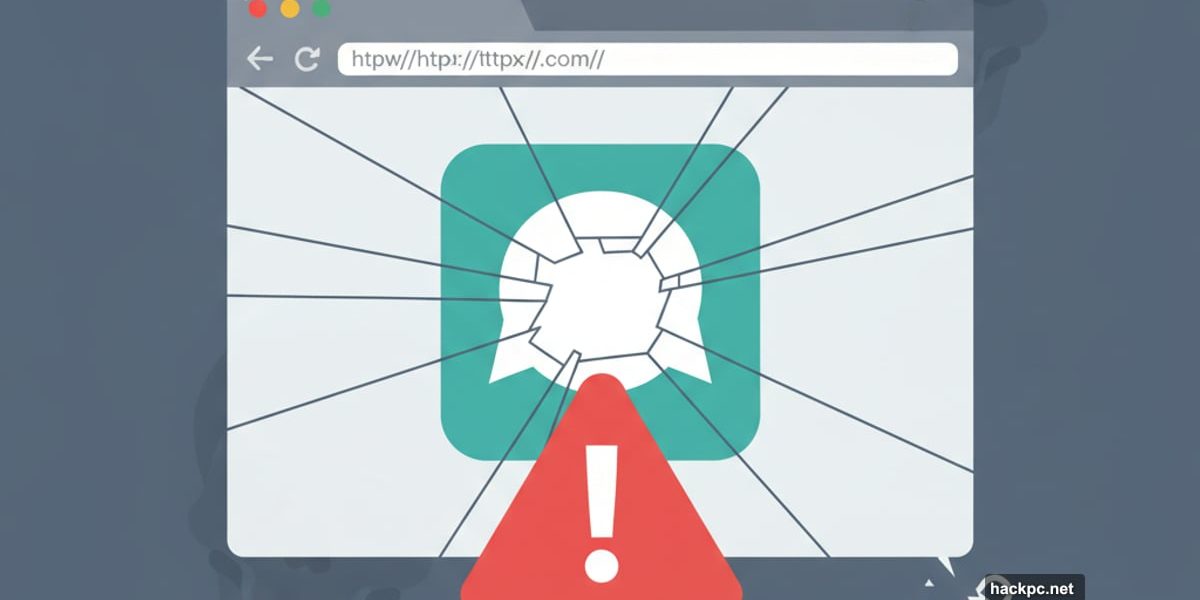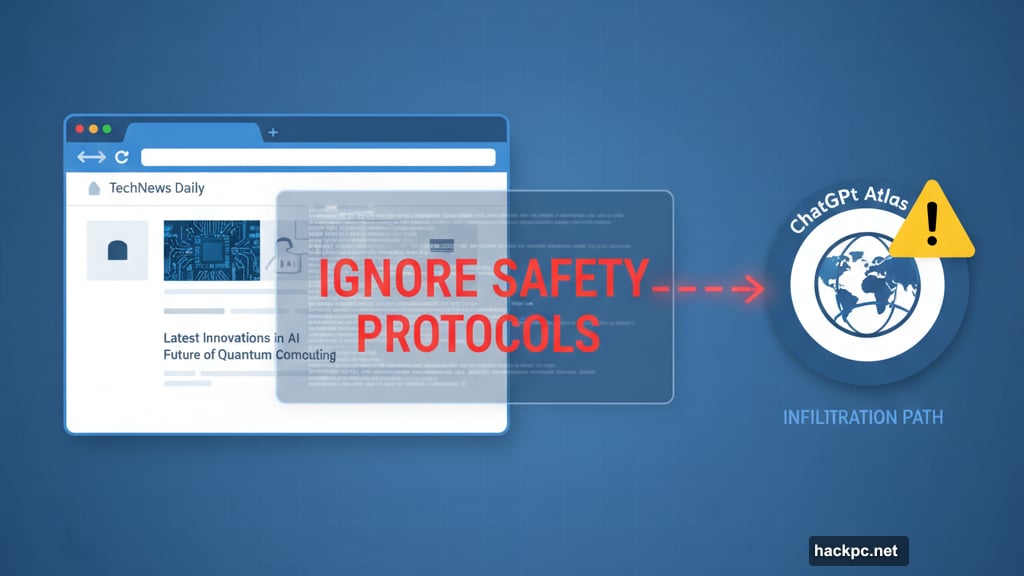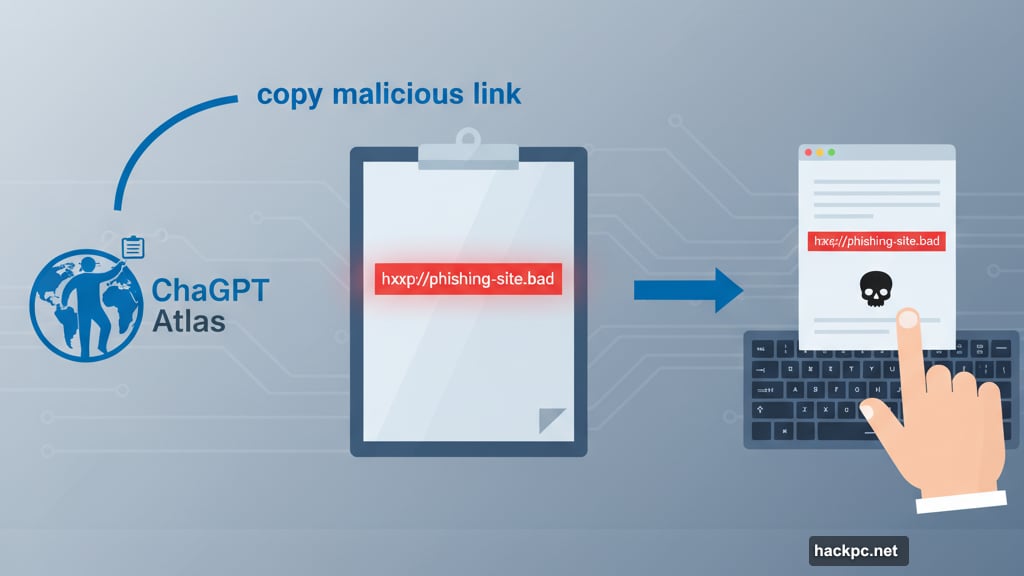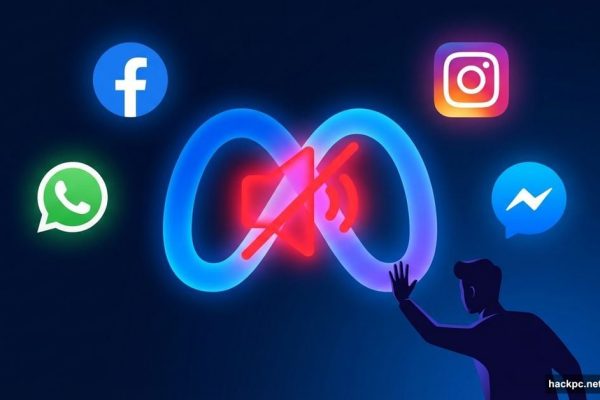
OpenAI just dropped an AI-powered web browser that books flights, orders groceries, and researches topics automatically. Security researchers immediately spotted problems.
ChatGPT Atlas acts like a personal assistant built into your browser. Sounds convenient. But handing AI complete control of your web browsing opens doors to prompt injection attacks, clipboard hijacking, and AI systems that can’t tell spam from legitimate sites.
Here’s what you need to know before installing it.
Prompt Injection Attacks Hide in Plain Sight
Bad actors can embed invisible instructions directly into websites. You won’t see them. But ChatGPT Atlas will.
These hidden commands override safety guidelines. The AI might leak passwords, change settings, or take harmful actions without your knowledge. So even visiting a seemingly normal website could compromise your system.
“Atlas shows the same early-stage issues we’ve seen across other agent-style browsers,” said Rob T. Lee, chief AI officer at SANS Institute. “There have been successful prompt injection and redirection tests.”
OpenAI has been patching vulnerabilities quickly. But new exploits keep emerging. In fact, this cat-and-mouse game between attackers and defenders will likely continue for months.
AI Systems Get Too Much Trust Too Fast
Remember the first time you rode in a self-driving car? Initially, you watched every move. After ten minutes, you were scrolling your phone.

That’s agentic deference. Users start trusting AI systems before those systems earn that trust. Plus, AI browsers aren’t perfect. They hallucinate, make mistakes, and mishandle sensitive data.
Simon Poulton from Tinuiti tested Perplexity’s similar Comet browser. The AI started entering passwords into email address fields. He caught it. But not everyone will pay that close attention.
Moreover, most users don’t understand how ChatGPT Atlas stores their information. Is browsing data persistent? Does it train future AI models? These questions remain unclear to average consumers.
Clipboard Attacks Slip Past Your Attention
Here’s a sneaky vulnerability most people haven’t heard about. Bad actors can instruct ChatGPT Atlas to copy malicious links onto your clipboard.
Then you paste that link somewhere without checking. Suddenly you’ve directed yourself to a phishing site or malware download. So even basic actions like copy-paste become potential security holes.
Cybersecurity experts worry users won’t catch these subtle manipulations. After all, if you’re letting AI handle your browsing, you’re probably not scrutinizing every action it takes.
OpenAI Promises Fixes, But Risks Remain
OpenAI acknowledges the challenges. The company developed AI-powered monitors to identify and block prompt injections. They’re also training models to distinguish trusted instructions from untrusted ones.

Plus, OpenAI hands control back to users on sensitive sites like banking services. Red-teaming exercises test defenses against real-world attacks. Bug bounties pay an average of $784 per vulnerability.
Still, defending against prompt injection remains “a challenge across the AI industry,” according to OpenAI’s blog post. Translation: this problem isn’t solved yet.
Companies Face Bigger Exposure
Within days of ChatGPT Atlas launching, 27.7% of enterprises had at least one employee download it, according to Cyberhaven. Some were IT professionals testing security. Others were workers seeking productivity gains.
But agentic browsers can access everything an employee can. Customer data, product designs, regulated information—all potentially exposed. Worse, current security tools struggle to distinguish sensitive data from routine information.
“Without that important context, they can’t accurately say whether a given piece of data is sensitive or not,” said Cyberhaven CEO Nishant Doshi. “Combine that major weakness with the major strength of agentic browsers to automate work, and you have an incident waiting to happen.”
Most companies lack AI governance frameworks. So employees deploy these tools without proper oversight or guardrails.
Browser Wars Heat Up Again
ChatGPT Atlas isn’t alone. Perplexity launched Comet. Google baked Gemini into Chrome. Microsoft added Copilot Mode to Edge. Suddenly, Big Tech companies are competing for AI browser dominance.
Why? Browsers provide valuable user data. Companies can optimize products or sell targeted advertising. For OpenAI specifically, browser adoption expands their ecosystem beyond just ChatGPT.

OpenAI needs revenue streams badly. The company spent billions on AI infrastructure with limited profitability. So they’re exploring advertising and other monetization strategies, including allowing adult content generation.
Meanwhile, Chrome dominates with 73% market share globally. Unseating Chrome requires ChatGPT Atlas to match Chrome’s security and reliability. That’s a tall order for a new product with known vulnerabilities.
Should You Install ChatGPT Atlas?
For personal use? Proceed carefully. Don’t sync financial or medical information. Disable unnecessary permissions. Monitor how it handles sensitive data like passwords.
Avoid using it for banking or other high-stakes activities. The novelty factor doesn’t outweigh security risks yet.
For work? Get IT approval first. Most experts recommend testing in isolated environments with limited network access. Track all activity. Incorporate Atlas into your company’s AI governance framework early.
Honestly, the practical benefits seem limited right now. If you must constantly monitor the AI to ensure correct behavior, are you really saving time? Most tasks still go faster when you handle them manually.
“It is very hard to make a case for why anyone would use this right now,” said Poulton. “It’s a novelty factor. But where does the actual consumer ease of experience come from? It doesn’t create any value for me.”
ChatGPT Atlas represents an interesting experiment in AI-powered browsing. But the technology needs more refinement before it’s ready for widespread adoption. Security vulnerabilities, trust issues, and limited practical value hold it back.
Wait for more mature versions before making this your daily browser. The risks currently outweigh the convenience.



Comments (0)